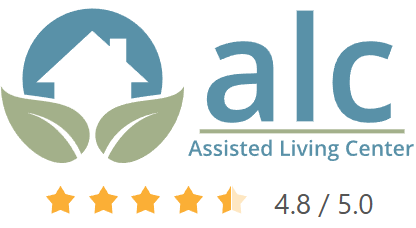As intimidating as dementia sounds, we have to face the facts: the disease affects around 50 million people around the world. The only way to make this condition more manageable and maximize your elderly loved one’s quality of life is to learn to recognize its signs early on, even before the official diagnosis has been confirmed.

Professionals caregivers providing homecare in Beverly Hills, CA have experience in assisting elderly clients in the early, middle and late stages of dementia. Struggling with the impact of dementia is an enormous challenge and families of the elderly suffering from dementia look for caregivers who are familiar with the symptoms of dementia patients and capable of providing an appropriate response to their behaviors in a timely manner.
So how can you learn to recognize dementia and differentiate between dementia and normal age-related memory loss?
What is the difference between dementia and old age memory loss?
Consulting a medical specialist is the only way to determine with certainty whether your elderly loved one is experiencing what is normal age-related memory loss or dementia, but you can learn to recognize other possible symptoms of dementia. Unlike age-related memory lapses which are not too serious and happen once in a while, dementia is a debilitating, disabling disease which has a huge impact on the patient’s daily performance, functionality and cognitive and physical abilities.
What can cause memory loss other than dementia?
If memory issues persist and you start to suspect that they may be caused by a serious condition, consult a medical specialist. While memory loss and forgetfulness may be age-related, it can also be caused by a variety of other factors. Dementia is just one of them. Other possible culprits include depression, delirium, alcoholism, toxic reactions to medication, Vitamin B12 deficiency, as well as thyroid disease, brain tumors and subdural hematomas.
What are the 7 stages of dementia?
While each patient is different and has a unique experience of dementia, the progression of the disease follows a similar trajectory. In case of Alzheimer’s disease, it is possible to distinguish between 7 stages:
- No impairment and no symptoms
- Very mild cognitive decline and memory issues that often go unnoticed
- Mild cognitive decline when impaired cognitive function becomes easily noticeable
- Moderate cognitive decline, characterized by deteriorating short-term and long-term memory
- Moderately severe cognitive decline, a stage when the patient can no longer cope on their own and may need help with daily activities
- Severe cognitive decline, when the patient may require constant supervision or even professional care for safety reasons
- Very severe cognitive decline, the final stage of the disease that results in a fatal outcome. The stage is characterized with complete loss of communication abilities and ability to maintain functionality and respond to normal day-to-day situations.
What are the 10 warning signs of dementia?
The key warning signs of dementia include:
- Short-term memory loss that disrupts the patient’s normal daily life
- Planning or problem-solving issues
- Decreased or poor judgement
- Difficulty completing normal tasks
- Repetition and inability to adapt to change
- Deteriorating spatial orientation and sense of direction and time
- Verbal difficulties that lead to difficulty maintaining a conversation followed by withdrawal from social situations
- Confusion
- Apathy
- Mood swings and personality changes
What is the 30 question cognitive test?
The 30-question cognitive test is a 30-point questionnaire commonly used to screen for dementia. The test bears the official name of the Mini-Mental State Examination or the Folstein Test.
Building a strong record in quality homecare in Beverly Hills, CA since 1998

Struggling with a degenerative disease such as dementia and its impact on your elderly loved one is a difficult challenge that can take a toll on your health and wellbeing. Whether your elderly loved one has been diagnosed with dementia or suffers from memory loss issues typical of old age, you don’t have to go through it all alone. We can match you with experienced providers of quality home care who will visit your elderly loved one in their home near Virginia Gardens Park or elsewhere in the city. Make your appointment today.








